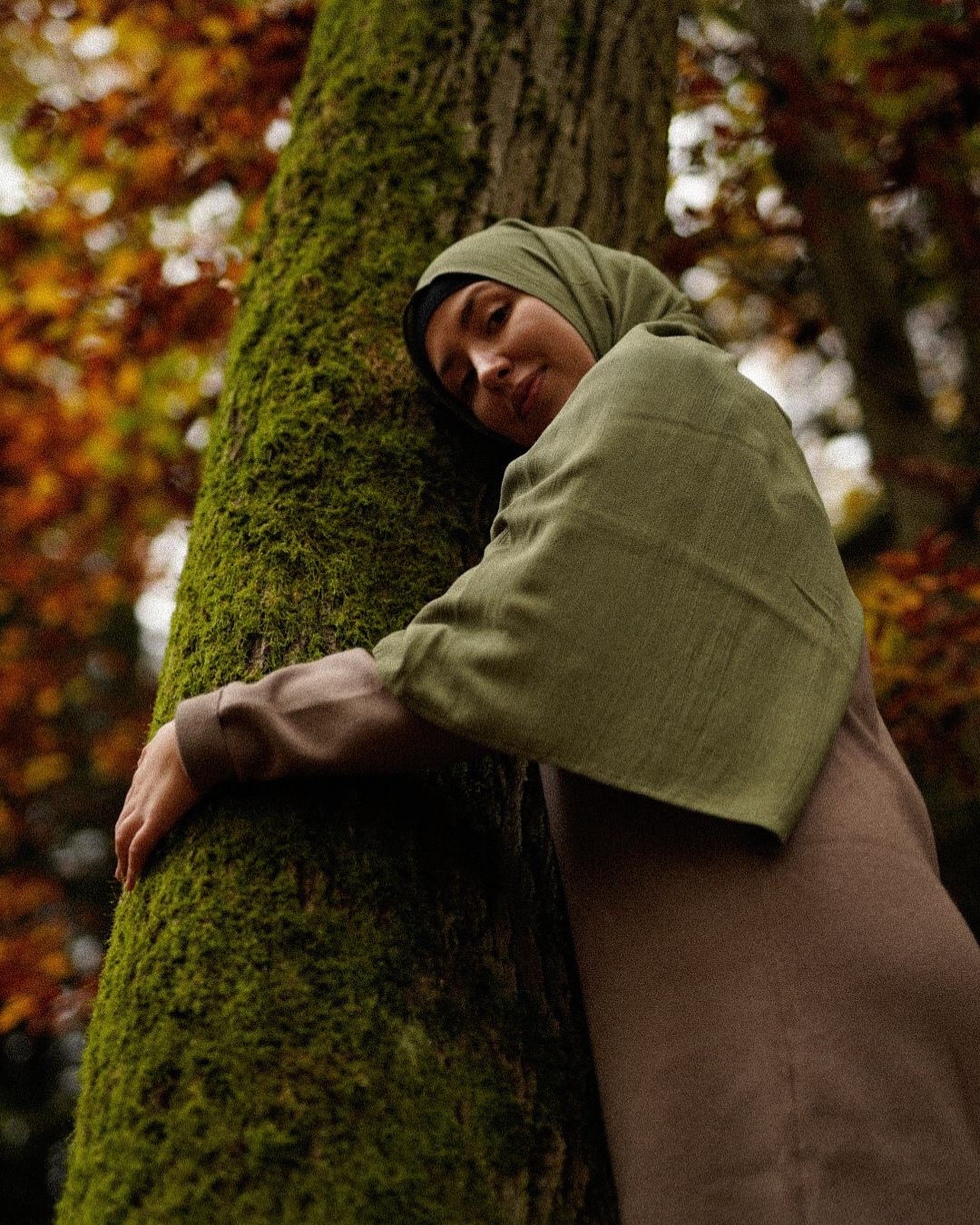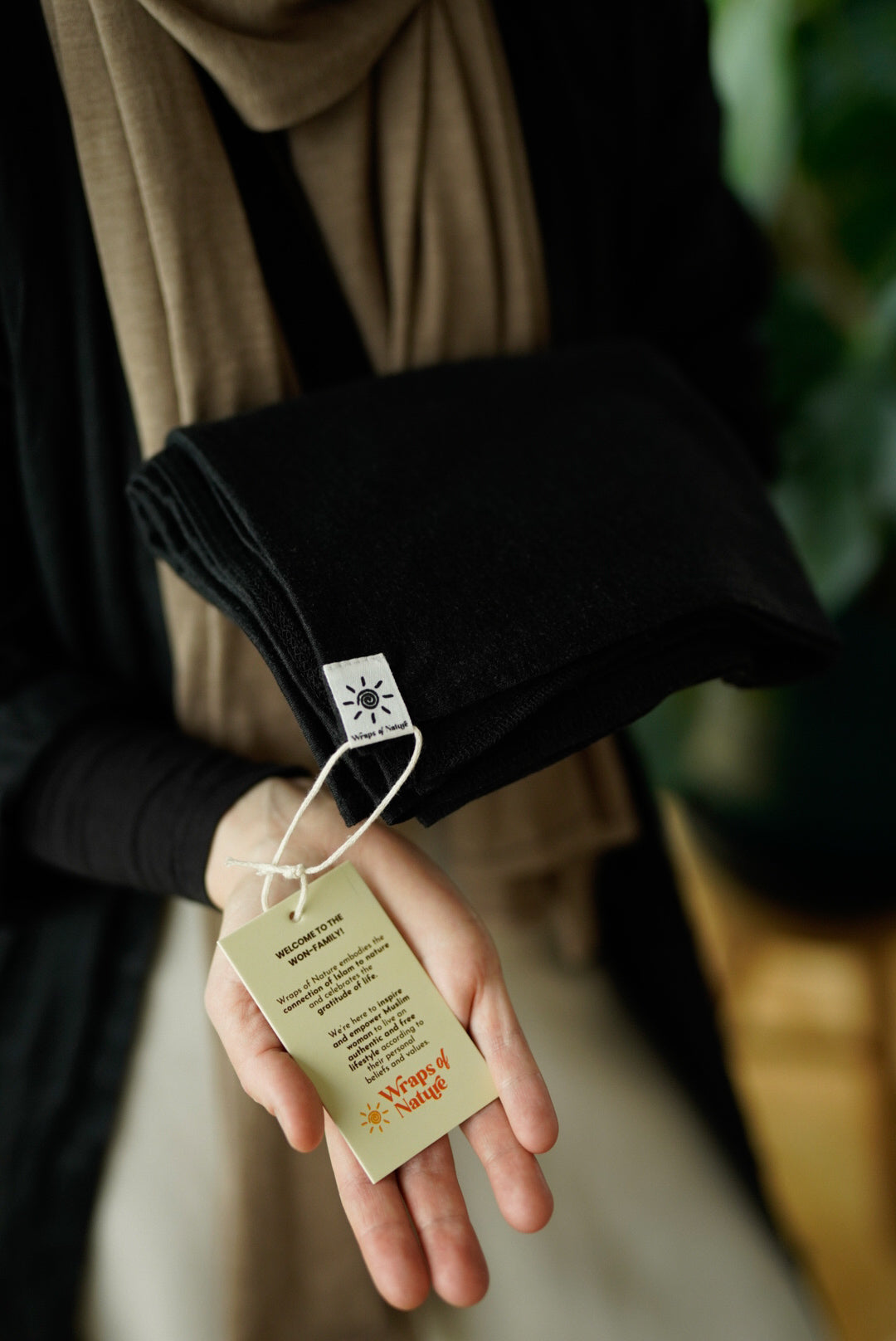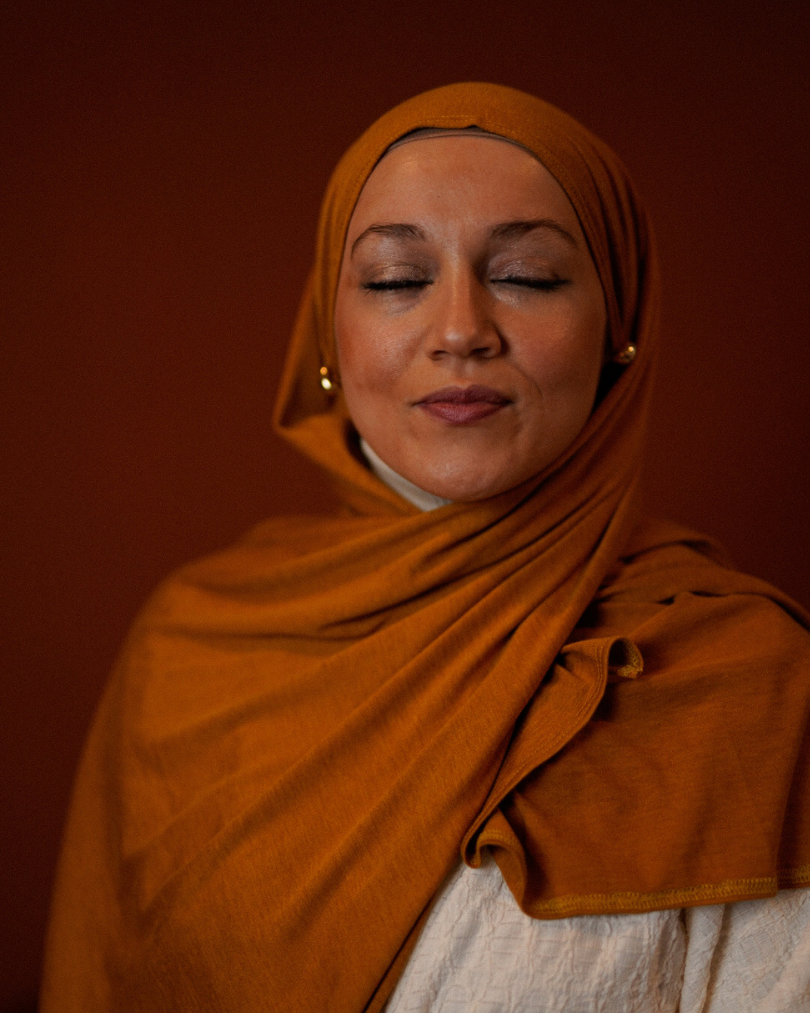Written by Emily Fischer (@thisisamaly)
You probably already have a premonition that Islam and sustainability go hand in hand. At least with Wraps of Nature you have found a great way to make your lifestyle more sustainable.
I had a similar idea of Islam and the environment being a great fit when I completed my Master's thesis about a year ago. My vision was to offer young Muslims a new (religious) perspective on the environment and sustainability. On the basis of a research project called "Sustainability education and environmental commitment of Muslim youth in Lower Saxony", I was able to structure my thoughts for the first time and concretize them to such an extent that I was later able to start my own survey. This resulted in a master's thesis with many inspiring results.
In the end, the young people's perception of their own role and position in the environmental issue was particularly exciting. They perceived the environmental debate as "westernized" and therefore lacked access. Particularly as criticism was repeatedly voiced that Western countries and their politicians were pointing the finger at other regions of the world that were doing too little for the environment. At the same time, the global West is the part of the world that puts the most pressure on the environment.
They constantly focused on the dilemma of the international balance of power - even when it came to reflecting on their own actions, or especially when it came to reflecting on their own actions. Their own supposed powerlessness in comparison to politics and industry seemed to be a convenient excuse. As consumers, however, the young people also understood that they have an influence, even if it was initially perceived to be so small.
When it came to the topic of fast fashion, a game within a workshop showed one thing: The prevention of wearing sustainable suppliers:inside is related to the price, the lack of coolness or even the visual disappointment of sustainable products. So even if the young people showed interest in sustainable products based on the positive factors for the environment, this ultimately evaporated due to the price factor. Even when well-known brands had a similar price.
Muslim people, the Western world and the environmental issue
Finally, my experiences with the young people from the project and my survey resulted in a summary of approaches that should help Muslim young people in particular to get closer to the environment and a sustainability awareness. In my view, the most important thing is to create a safe and open framework that allows them to develop and grow at their own pace with ever new solutions in a more sustainable and Muslim life. The exchange with other people and proven ways of life or innovations in one's own life can help to stay motivated.
I saw potential where young people perceived the debate on the environment and sustainability as "westernized". I wanted and still want to inspire young Muslims to create their "own Muslim debate" within their social environment, if it makes it easier for them to see themselves as part of the environmental debate.
You can, but do not have to, draw on the Western world and approach. There are many anti-colonial associations within the environmental movement, which in my view can be a point of contact for Muslim people in particular. I see the reason for this above all in the noticeable repression of the Western majority society, which the young people also always emphasized indirectly.
A great example of Muslim and anti-colonial resistance is Elisa Bas, who campaigns for international climate justice in the Hamburg area. The connection between religion and science is essential for a growing Muslim influence on the environmental movement in Germany, which is shaped by younger people. It can, for example, find a place within empowering and needs-oriented youth work, so that the sustainability awareness of young Muslims can be strengthened.
Open youth work to promote sustainability awareness among young Muslims
Religion and science are just two subjects that play an important role and can complement and reinforce each other if we want to mobilize young people. Initial impulses for open youth work should be geared towards religion and science in order to promote sustainability among Muslim young people in a targeted manner. Zbidi 2013 states:
"According to Islamic environmental ethics, the solution to environmental problems lies in the revival of spirituality and faith. This does not mean that it distances itself from science and development, but it opposes the consumer society and immoderate behavior." (S. 5)
In my opinion, it is particularly important that Muslim young people come to terms with themselves, their religion and sustainability so that the aforementioned benefits can be understood on a religious, environmental and personal level. This is a key competence that should emerge from youth work with Muslim young people in open youth work.
However, there are other aspects that should be included in the long-term promotion of sustainability awareness. The young people themselves also showed what interests them, what motivates and demotivates them to act sustainably. Above all, they addressed social inequalities, social problems and thus problems affecting Muslim people that make them personally feel like an inferior part of society. Conversely, problems relating to the social participation of people of the Muslim faith must therefore be part of youth work in terms of promoting sustainability.
The role of religious actors
The combination of the entire experience - i.e. faith and spirituality as well as the scientific confrontation - complement each other to a certain extent. However, Muslims can also act in a sustainable and environmentally friendly way without the religiously motivated and shaped narrative. In my view, however, it is essential that Islam as an instrument for mobilization is clearly identified even more in religious institutions and that its potential is exploited.
The potential for this is there, which must be emphasized at this point, as it is not about exploiting religious conviction. Rather, it is about the benefit that is religiously verifiable and therefore present in the faith of Muslims, which de facto brings (Muslim) people closer to their Creator.
Those involved in the institutions should make an effort to provide offers for young and old. Or even better: show your municipality or institution that you are asking for it!
Muslim engagement in the global society
Far away from open youth work and our own immediate environment, we need to understand that we have power. We can decide whether we want to continue putting creation at risk. We can decide whether we want to slowly but surely change things in our everyday lives from now on.
We can always make new decisions and be inspired. We must not allow our influence as a Muslim community to be taken away just because we think we don't have access. We should pave the way. There are millions of Muslims in Germany who we have as companions.
We have the best prerequisites because - and this is invaluable - we also have an advantageous international network thanks to migration. And what we must not forget either: Other non-Muslim people are also committed to the environment. We are welcome among them, we are on the move in a common cause, only guided by different sources.
Take into account that we as consumers are always deciding whether we prefer fast fashion or sustainable suppliers like Wraps of Nature. And now we come to you: your decision has influence, you have power, use it for yourself, your faith and the environment.
You can't miss out on such a small yet huge deed! Show yourself, show your will and show yourself with your sustainable headgear. From now on, give sustainable gifts and remember your task of sharing your knowledge with others. You alone can change a lot - show others how and then take them with you on your sustainable and Muslim path.



